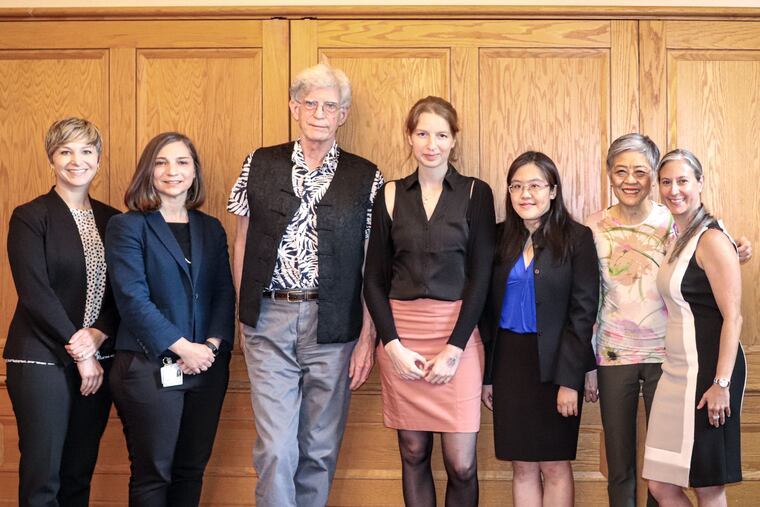Alzheimer’s Association awards $790K in grants to University of Pennsylvania researchers
The grants will fund research on cognitive testing, genetics and a form of cognitive dysfunction called SNAP.

The Alzheimer’s Association Delaware Valley Chapter this week announced nearly $790,000 in grant awards to Philadelphia scientists. The awards are from the Alzheimer’s Association International Research Grant Program and the Biomarkers Across Neurodegenerative Diseases (BAND) grant program, a collaboration between the Alzheimer’s Association, The Michael J. Fox Foundation for Parkinson’s Research, Alzheimer’s Research UK and Weston Brain Institute. All of the recipients are at the University of Pennsylvania.
The Alzheimer’s Association is currently investing over $165 million in grants for more than 450 projects in 25 countries.
The new Philadelphia grants went to:
Alice Chen-Plotkin to study biological networks and the pathophysiology of Alzheimer’s disease and Parkinson’s disease.
Amount: $149,621 over two years.
Dawn Mechanic-Hamilton to develop and validate a mobile cognitive assessment tool: a platform for two digital games. One is a memory card game and the other measures cognitive skills and brain processing speed. These functions have previously been identified as showing the earliest changes in Alzheimer's disease.
Amount: $139,497 over two years.
Gabor Egervari to study how problems with the protein ACSS2 may affect learning and memory in people with Alzheimer's disease.
Amount: $175,000 over three years.
Laura Wisse to study the causes and progression of "suspected non-Alzheimer’s pathophysiology," or SNAP. People with SNAP have damaged nerve cells and loss of brain volume and often also have diminished cognitive functioning. They do not have the hallmark pathological features of Alzheimer's disease.
Amount: $175,000 over three years.
Yuk Yee Leung to study genetic aspects of Alzheimer's disease and other forms of dementia.
Amount: $150,000 over two years.